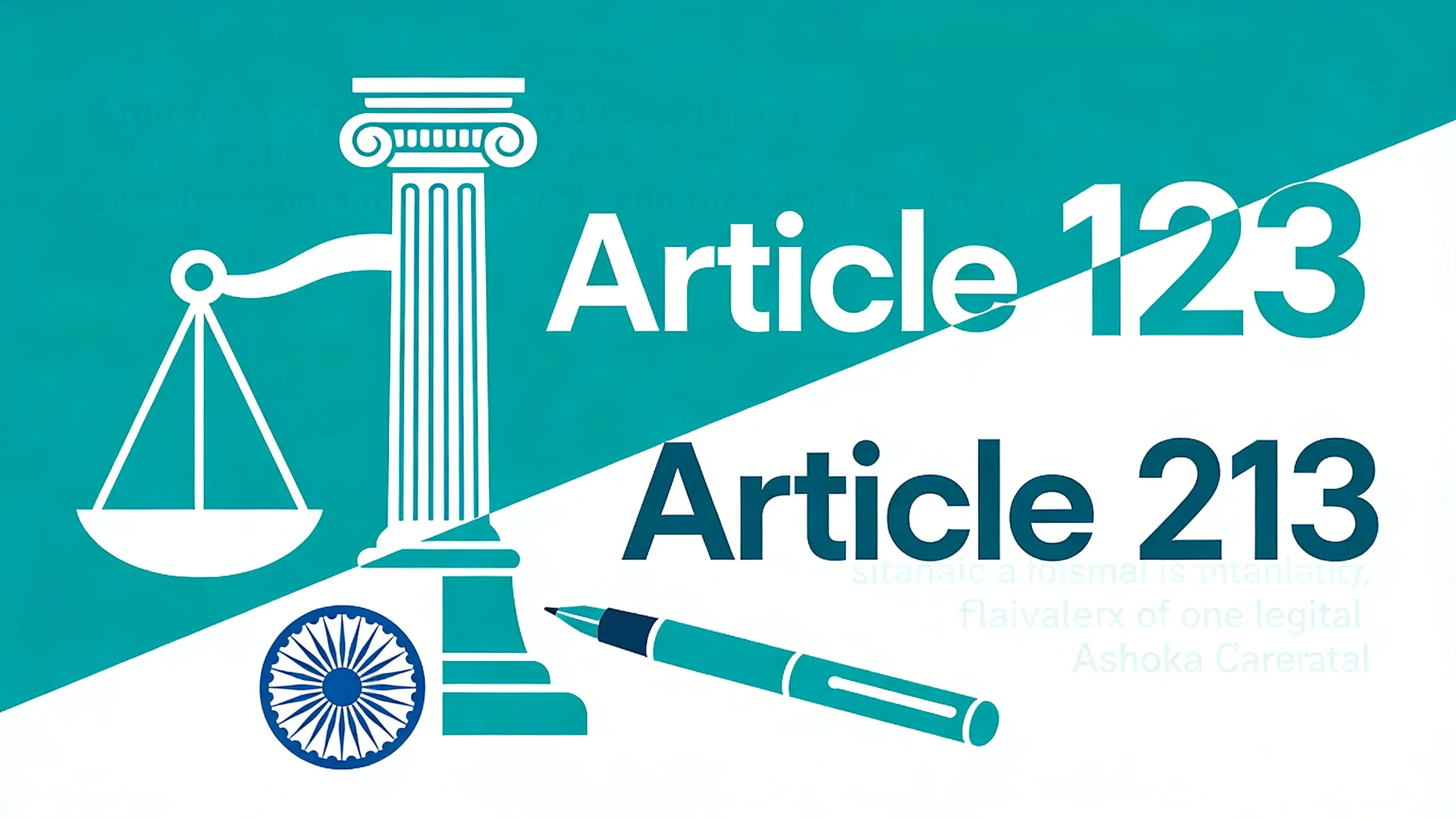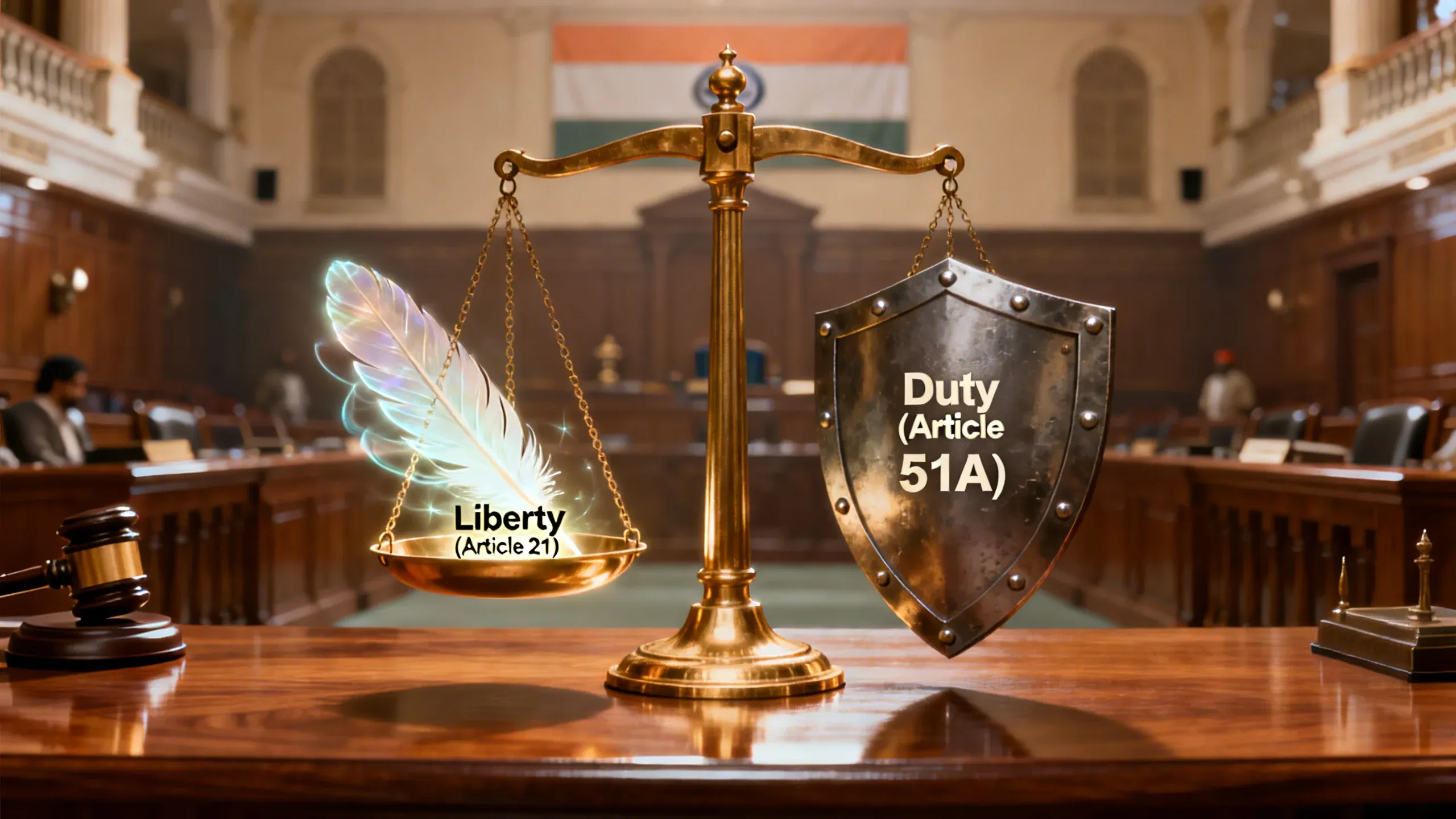
A Deep Dive into the Specific Relief Act, 1963: A Comprehensive Guide to Remedies and Judicial Interpretations
Dive deep into the Specific Relief Act, 1963, with this definitive guide analyzing key sections on property possession (Sec 6), specific performance (Sec 10), and injunctions (Sec 38), all updated with crucial judicial interpretations and the landmark 2018 amendment.
The Specific Relief Act of 1963 stands as a cornerstone of Indian civil law, providing a legal framework for remedies that go beyond mere monetary compensation. It is a procedural law that defines and amends the law relating to certain kinds of specific relief, aiming for the exact fulfillment of an obligation or the preservation of a right. This Act empowers civil courts to grant a variety of remedies, including the recovery of property, specific performance of contracts, rectification and cancellation of instruments, declaratory decrees, and various forms of injunctions. This comprehensive article delves into the key provisions of the Specific Relief Act, 1963, enriched with judicial interpretations that have shaped its application over the decades.
The Philosophy Behind Specific Relief
The fundamental principle of the Specific Relief Act is to ensure that a person gets what they are entitled to in a civil dispute, especially when financial compensation would be an inadequate solution. It operates on the principles of equity and justice, aiming to restore a party to the position they would have been in had the wrong not occurred. This is particularly crucial in cases involving unique assets, such as real estate or rare movable property, where the loss cannot be quantified in monetary terms.
The Act provides for both preventive and specific relief. Preventive relief, typically in the form of an injunction, aims to stop a party from committing a wrongful act. Specific relief, on the other hand, compels a party to perform a specific action as per their contractual or legal obligation.
Key Provisions and Judicial Insights
Section 6: A Swift Remedy for Dispossession of Immovable Property
Section 6 of the Specific Relief Act offers a summary and speedy remedy for a person who has been dispossessed of immovable property without their consent and otherwise than in due course of law. The primary focus of this section is on the possession of the property, not the title.
-
Core Tenets:
- A person dispossessed of immovable property without their consent and through unlawful means can file a suit to recover possession.
- This right exists regardless of any other title that might be claimed in the suit. The court will primarily examine if the plaintiff was in possession and was illegally dispossessed.
- A crucial limitation is that the suit must be filed within six months from the date of dispossession.
- No suit under this section can be brought against the Government.
- Significantly, any order or decree passed under this section is not subject to appeal or review.
- However, this section does not prevent a person from filing a separate suit to establish their title and recover possession under Section 5 of the Act.
-
Judicial Interpretations:
- The Supreme Court has consistently held that a suit under Section 6 is a summary proceeding. The core issue to be decided is whether the plaintiff was in possession and was wrongfully dispossessed within the six-month period, without delving into the complexities of title ownership.
- The purpose of this section is to discourage individuals from taking the law into their own hands. Even a person in unauthorized possession cannot be forcibly evicted without following the due process of law.
- The term “due course of law” implies a legal process that is fair and just, conducted by a competent court or tribunal.
- While a true owner can regain possession from a trespasser without force, if the trespasser has established “settled possession,” they can only be evicted through legal means.
Section 10: The Evolving Landscape of Specific Performance of Contracts
Section 10 deals with the specific performance of contracts, a remedy that compels a party to fulfill their contractual obligations. This section has undergone a significant transformation with the 2018 amendment.
-
Before the 2018 Amendment:
- The grant of specific performance was a discretionary power of the court.
- It was typically granted when there was no standard to ascertain the actual damages from non-performance or when monetary compensation was not an adequate relief.
- There was a presumption that in contracts involving immovable property, monetary compensation would not be adequate.
-
After the 2018 Amendment:
- The amendment has made the specific performance of a contract a mandatory remedy, with certain exceptions. The court “shall” enforce specific performance, shifting from a discretionary to a more obligatory stance.
- The exceptions to this rule are outlined in Sections 11(2), 14, and 16 of the Act.
-
Judicial Interpretations:
- The Supreme Court has affirmed that following the 2018 amendment, specific performance is no longer a discretionary remedy. Courts are now bound to enforce it, subject to the specified exceptions.
- A critical requirement that remains is the plaintiff’s “readiness and willingness” to perform their part of the contract, as stipulated in Section 16(c). The plaintiff must demonstrate their continuous readiness from the date of the contract until the suit’s hearing.
Section 20: The Lingering Importance of Judicial Discretion
Prior to the 2018 amendment, Section 20 explicitly stated that the jurisdiction to decree specific performance was discretionary. While the amendment to Section 10 has made specific performance more of a rule, the principles enshrined in Section 20 continue to guide the courts, especially when considering the exceptions to mandatory enforcement.
-
Guiding Principles for Discretion:
- The court’s discretion is not arbitrary but must be “sound and reasonable, guided by judicial principles.”
- The court should meticulously consider all facts and circumstances of the case.
- The court may choose not to decree specific performance in cases where the contract gives the plaintiff an unfair advantage, would cause unforeseen hardship to the defendant, or where it would be inequitable to enforce it.
-
Balancing the Equities:
- Courts will look at the conduct of the parties and whether one is trying to take undue advantage of the other.
- A significant rise in property prices during litigation is generally not a sole reason to deny specific performance, but it can be a factor in balancing the equities, and the court may impose conditions like additional payment.
Section 31: The Power to Cancel Written Instruments
Section 31 empowers the court to order the cancellation of a written instrument that is void or voidable and could cause serious injury if left outstanding.
-
Conditions for Cancellation:
- The person seeking cancellation must be someone against whom the instrument is void or voidable.
- There must be a reasonable apprehension that the instrument, if not canceled, could cause serious harm.
- The court has the discretion to adjudge the instrument as void or voidable and order its cancellation.
- If the instrument is registered, the court will send a copy of its decree to the registration officer to note the cancellation.
-
Judicial Interpretations:
- The purpose of this section is protective and preventive, aimed at removing a “menace and danger” to the person against whom the instrument might be used.
- A key principle established by courts is that a unilaterally executed cancellation deed of a registered sale deed is generally void. Title to a property that has been transferred through a registered sale deed cannot be unilaterally revoked. Cancellation requires a court order.
Section 34: Seeking a Declaration of Rights
Section 34 allows a person to file a suit for a declaratory decree to establish their legal character or right to any property against another person who denies it.
-
Essential Elements:
- The plaintiff must be entitled to a legal character or a right to property.
- The defendant must be denying, or be interested in denying, the plaintiff’s title or right.
- The court, in its discretion, can make a declaration of the plaintiff’s entitlement.
-
The Crucial Proviso:
- A significant limitation is the proviso to Section 34, which states that a court will not grant a mere declaration if the plaintiff is able to seek further relief but omits to do so. This is to prevent a multiplicity of lawsuits. For instance, if a person is out of possession of a property and seeks a declaration of title, they must also seek the consequential relief of possession. Failure to do so can lead to the dismissal of the suit.
-
Judicial Interpretations:
- A declaratory decree is generally binding only on the parties to the suit and not on the world at large.
- The Supreme Court has reiterated that a suit for declaration of title without seeking recovery of possession is not maintainable if the plaintiff is not in possession.
Section 38: Granting a Perpetual Injunction
A perpetual injunction is a final order of the court that permanently restrains a party from doing a particular act. Section 38 lays down the circumstances under which such an injunction can be granted.
-
Grounds for a Perpetual Injunction:
- To prevent the breach of an obligation existing in the plaintiff’s favor.
- If the obligation arises from a contract, the court will be guided by the rules of specific performance.
- When the defendant invades or threatens to invade the plaintiff’s right to or enjoyment of property, an injunction may be granted if:
- The defendant is a trustee of the property for the plaintiff.
- There is no standard for ascertaining the actual damage caused.
- Monetary compensation would not be adequate relief.
- The injunction is necessary to prevent multiple legal proceedings.
-
Judicial Interpretations:
- The plaintiff must prove their possession of the property and the defendant’s interference or threat of interference.
- In a suit for an injunction, the primary question is possession on the date of filing the suit, although the title may be examined incidentally. A person in settled possession can obtain an injunction against anyone without a better title.
- The grant of an injunction is a discretionary and equitable remedy. The court will consider the conduct of the parties and whether the plaintiff has approached the court with “clean hands.”
Section 41: When an Injunction Will Be Refused
Section 41 provides a list of specific situations where a court cannot grant an injunction. This section acts as a check on the power to grant this potent remedy.
-
Grounds for Refusal:
- To restrain a person from prosecuting a pending judicial proceeding, unless it is necessary to prevent a multiplicity of proceedings.
- To restrain a person from instituting or prosecuting a proceeding in a court that is not subordinate to the court from which the injunction is sought.
- To restrain any person from applying to a legislative body.
- To restrain the institution or prosecution of a criminal matter.
- To prevent the breach of a contract that cannot be specifically enforced (e.g., contracts for personal services).
- When the plaintiff has acquiesced in the continuing breach.
- When an equally effective relief can be obtained through another usual mode of proceeding, except in cases of breach of trust.
- If it would impede or delay an infrastructure project (a recent amendment).
- When the plaintiff’s conduct disentitles them to the court’s assistance (the “unclean hands” doctrine).
- When the plaintiff has no personal interest in the matter.
-
Judicial Interpretations:
- Courts have consistently upheld the bar on injunctions that interfere with lawful judicial or criminal proceedings.
- An injunction cannot be granted to prevent the termination of a contract that is determinable by its nature, as this would amount to specifically enforcing a determinable contract.
- The “clean hands” doctrine is a vital principle. A party seeking an injunction must be honest and forthcoming with the court, disclosing all material facts.
- The amendment regarding infrastructure projects reflects a legislative intent to prevent delays in projects of public importance.
Conclusion
The Specific Relief Act, 1963, provides a robust framework for ensuring that civil rights and contractual obligations are honored in a just and equitable manner. Its provisions, from the swift remedy for dispossession under Section 6 to the now-mandatory enforcement of contracts under the amended Section 10, demonstrate a commitment to providing effective relief beyond mere financial compensation. The judicial interpretations over the years have further refined the application of these provisions, ensuring that the discretionary powers of the courts are exercised judiciously and in the interest of justice. A thorough understanding of this Act and its evolving jurisprudence is essential for legal practitioners and citizens alike in navigating the complexities of civil law in India.
Frequently Asked Questions (FAQs)
1. What is the main purpose of the Specific Relief Act, 1963?
The primary objective of the Specific Relief Act, 1963, is to provide remedies for the enforcement of individual civil rights where monetary compensation is not an adequate solution. It aims to ensure the actual fulfillment of obligations and the protection of rights.
2. Can I get a property back if I have been illegally thrown out?
Yes, under Section 6 of the Specific Relief Act, if you have been dispossessed of immovable property without your consent and not by due process of law, you can file a suit to recover possession. However, this suit must be filed within six months of the dispossession.
3. Is the court always bound to grant specific performance of a contract?
Following the 2018 amendment to Section 10, the specific performance of a contract is now generally a mandatory remedy. However, there are exceptions, and the court will not grant it in cases covered by Sections 11(2), 14, and 16 of the Act.
4. What is the difference between a temporary and a perpetual injunction?
A temporary injunction is granted for a specific period or until further orders from the court and is governed by the Code of Civil Procedure, 1908. A perpetual injunction is a final order granted after the full hearing of the case, permanently restraining a party from a certain act.
5. What happens if I file a suit for a declaration of title to a property but I am not in possession?
According to the proviso of Section 34, if you are able to seek further relief, such as possession, but you only sue for a declaration of title, the court will not grant the declaration. You must seek all available reliefs in the same suit.
6. Can a registered sale deed be canceled by one party alone?
No, a registered sale deed cannot be canceled unilaterally. The cancellation of a registered instrument that has already transferred title requires a decree from a competent civil court under Section 31 of the Specific Relief Act.
7. What does it mean to approach the court with “clean hands”?
This is a fundamental principle of equity. It means that a person seeking a discretionary remedy from the court, such as an injunction or specific performance, must not have engaged in any fraudulent, unfair, or deceptive conduct related to the matter in dispute.
8. Can an injunction be granted to stop a criminal case?
No, Section 41(d) of the Specific Relief Act expressly prohibits a court from granting an injunction to restrain any person from instituting or prosecuting a criminal proceeding.


